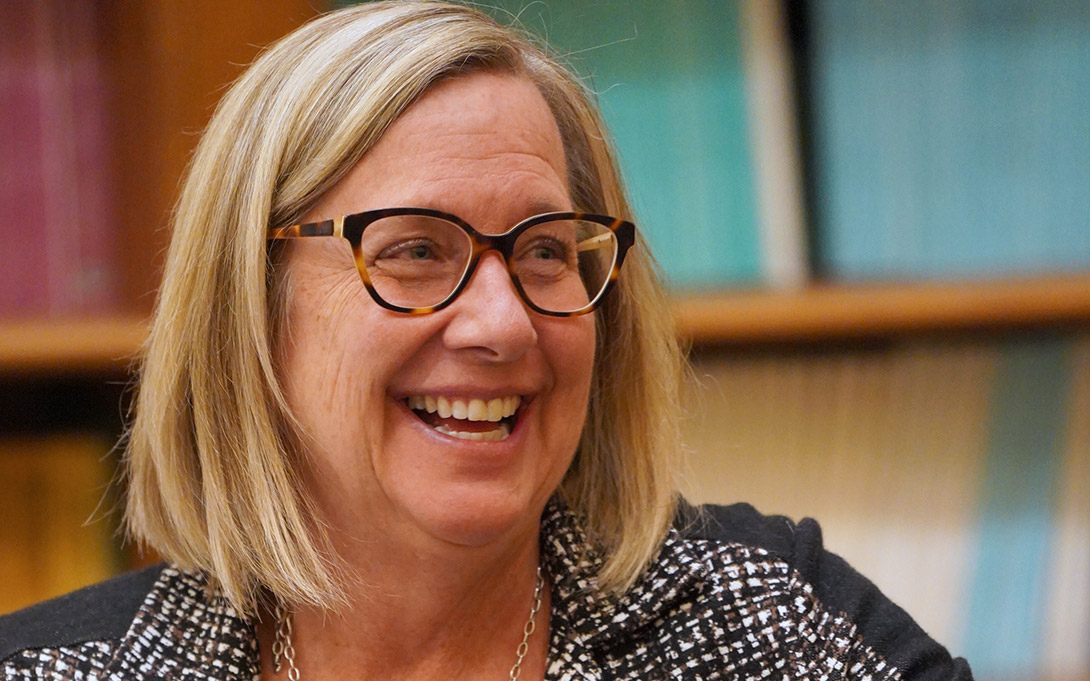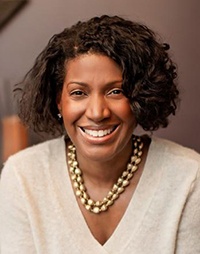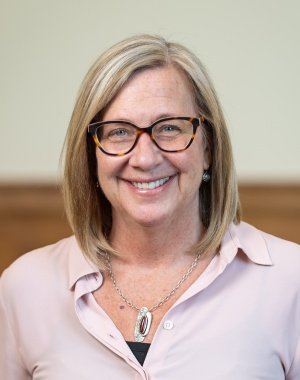
By David Pratt
Paula Lantz completes remarkable term as associate dean
Diversity, equity, and inclusion. Curricular overhaul and creation of a new master’s program. A leadership initiative. Helping students, faculty, and staff through a pandemic.
“I did not do these things,” explains Paula Lantz, the Ford School’s associate dean for academic affairs, with a matter-of-factness those who know her will recognize. “Ford is an amazing community. Everyone worked together—faculty, staff, students, alumni. I am, however, proud of certain ideas I could bring forward.”
This August, Lantz concludes her remarkable tenure as associate dean of academic affairs (she will remain on the faculty, but a sabbatical in Spain is on the itinerary first.)
Since her appointment five years ago, Lantz has stretched the bounds of an associate dean’s typical portfolio and played a transformational role in the school’s intellectual and social development. “Paula is an extraordinary individual,” says Dean Michael Barr. “She always puts school and community first. She is driven by our mission, and she cares deeply about faculty, staff, and students. She exemplifies ‘service leadership,’ building with others in a deeply collaborative way.”
The year Lantz took her current position, U-M rolled out its Diversity, Equity, and Inclusion (DEI) strategic plan, and she’s been the faculty co-lead for the Ford School.
“DEI had to involve everyone,” Lantz says. “To create big cultural and organizational change, DEI work has to be embedded in every aspect of the Ford School. Such efforts include improving the curriculum to address the ways in which public policy actually creates and perpetuates systemic racism, improving our faculty and staff hiring processes, and creating better experiences for students.”
“Paula did not want DEI to be about ‘check this box,’” says Susan Guindi, director of student and academic services. “She wanted it infused in everything we did.” Such an approach took time and collaboration, and it’s given the school a foundation that will last.
Lantz also directed—and redirected—the school’s two master degree programs. She put together a team to do a landscape analysis, looking at master’s programs in other schools and aligning faculty strengths with the needs of mid-career professionals. “Again, the process was collaborative,” she says. “We had input from everyone. I very much enjoyed leading it.” The upshot was a redesign of the MPP core curriculum and the creation of a powerhouse new one-year master’s of public affairs program that has drawn accomplished, diverse cohorts in its first two years.
When she arrived at Michigan in 2015, Lantz thought that the school might do better at deliberately cultivating leadership. “I saw an opportunity to bring this in from my work in health management and policy.” She and her team sought lecturers and adjunct faculty who could teach leadership topics, and led efforts to layer leadership training in ways that build on the school’s core strengths in analysis and communication.
Lantz is a social epidemiologist who has somehow maintained an elite level of research and policy engagement while serving as a very busy associate dean. Her public health expertise and her authentic care for students, faculty, and staff shone throughout the COVID pandemic.
“She made our class feel supported,” says Heather Berg (MPP/MBA ’23) who took Lantz’s Public Policy Approaches to Social Disparities in Health course this year. “She was compassionate, and she was candid about the challenges she herself was facing.” More broadly, Lantz’s office responded to COVID by addressing international students’ concerns; by finding ways to keep all students, wherever they were, involved in the Ford School community; and by supporting faculty and students alike through the uncertainty and challenges of hybrid and remote teaching and learning.
Says J’Taime Lyons (MPP/MBA ’22), “She sees everyone going through this together and she wants to be a resource.”
“Students know Paula is their ally,” says Susan Guindi. “She has a passion for helping them work for the public good. Her leadership, her empathy, and her strengthening of the school are an unusual combination. She is a remarkable human being.”

Celeste Watkins-Hayes, the Jean E. Fairfax Collegiate Professor of Public Policy and University Diversity and Social Transformation Professor, was named associate dean for academic affairs and will take up the reins beginning August 1, 2021.
Below, find the full, formatted Spring 2021 edition of State & Hill.
